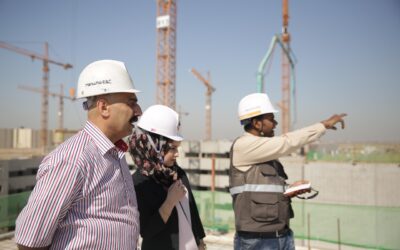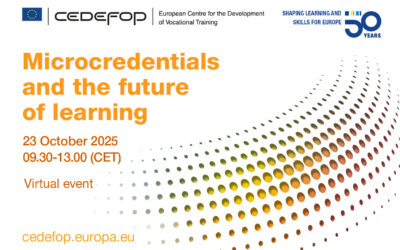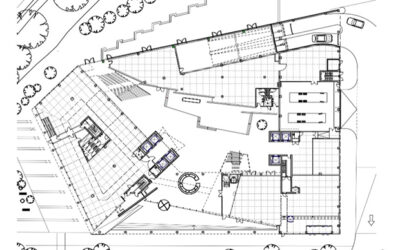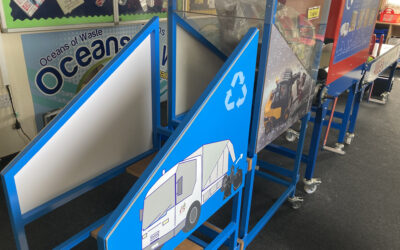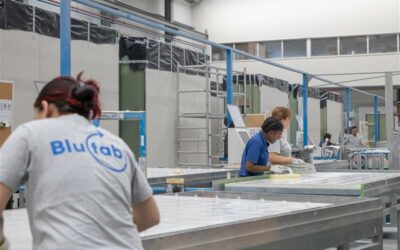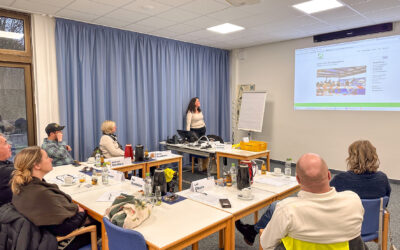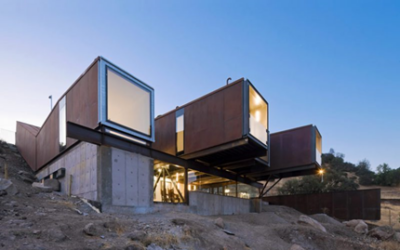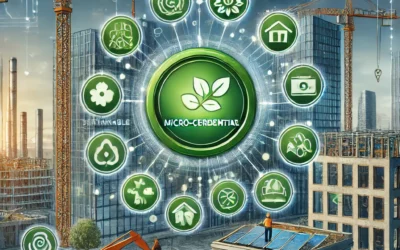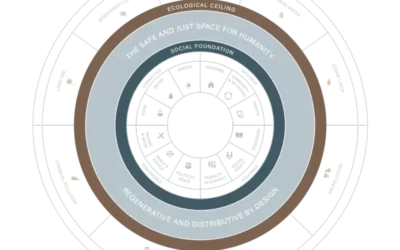Blog
A Holistic Approach to Credential Quality
The landscape of postsecondary education is undergoing a significant shift. With close to two million credentials now available, many offering quicker paths to careers than traditional degrees, learners and policymakers face a complex and often confusing array of...
Is the EU’s New Carbon Border Tax A Construction Industry Game Changer?
Green Circle takes a look at the key takeaways for Construction A seismic shift in global trade is underway, and construction sits squarely in the crosshairs. The European Union's landmark Carbon Border Adjustment Mechanism (CBAM) is now in force, introducing what's...
How Micro-credentials Can Transform Green Skills in the Construction Sector
As the green transition advances in Europe, construction companies face an increasingly urgent challenge: adapting quickly to new environmental, regulatory, and digital demands. Energy efficiency, sustainable materials, waste reduction, and digital tools like BIM...
Microcredentials and future of learning
Learning is evolving — are we ready for the shift? In recent years, microcredentials have appeared as one of the new innovations in education and training. They can offer flexibility and targeted learning opportunities that are aligned to new skill demands, especially...
BAUWANDEL: Embedding sustainability as a future skill in construction training
With the BAUWANDEL project, the Bildungswerkstatt für nachhaltige Entwicklung e.V. and the Verein zur Berufsförderung der Bauwirtschaft Nord e.V. are sending a strong signal for the future viability of the construction industry. The aim is to establish sustainability...
Retrofitting Urban Europe
This summer my family walked through the the narrow cobbled streets of Saint Malo’s Inter Muros, it’s the type of place that makes you feel like an extra in a Studio Ghibli film. Our European cities are all full of charm, character, history and beautiful old...
DG-Climate Action discuss building decarbonisation
https://climate.ec.europa.eu/news-your-voice/news/commissioner-hoekstra-chairs-implementation-dialogue-decarbonisation-buildings-and-road-transport-2025-06-11_en 20 stakeholders met in Brussels in June to discuss the challenges and solutions for new EU emissions...
The Ecosystem of Green Circle Micro-Credentials
Micro-credentials (MCs) are rapidly emerging as a transformative tool in vocational education, but their true potential lies in the ecosystem that supports them and the structure that ensures their quality and utility. The Green Circle Micro-Credential Strategy (part...
Podcast Episode 2: Feminism, The Construction Industry and Lifelong Learning
Google Notebook's AI podcasters take a feminist deep dive into the world of work and learning with a focus on the Construction Industry and breaking down the barriers. https://open.spotify.com/episode/7d9wfRgjTHxaF2A1wEfy0g?si=y2tRSYeSSP20GLZNRuFqwg Sources...
Ten years from The Edge – Still The Most Sustainable Building in Europe
Sustainability in architecture has become a cornerstone of modern design, with buildings striving to minimize environmental impact while maximizing efficiency and occupant well-being. Among Europe’s many green structures, one stands out as a leader in sustainable...
‘What do you actually do?’ – This is how we explain GreenCircle in our daily lives
‘What do you actually do there?’ – We hear this question quite often when we talk about our GreenCircle project. Sure, we have a website, a blog and we are active on LinkedIn. But for many people, it still remains rather abstract in their daily lives. That's why we're...
Wales’s Secret Weapon for Sustainable Construction? Its Recycling
Wales boasts that it is the second best country in the world for recycling. I went to visit a recycling facility in Rhondda Cynon Taff to find out more. I’ve been curious about Bryn Pica for a while now so when a fellow sustainability enthusiast mentioned their...
Building the Future of Green Skills: Inside the Green Circle Project’s First-Year of Research
The construction industry is evolving fast—driven by climate action, tech innovation, and shifting workforce needs. But how do we prepare workers for this green transformation? That’s the question at the heart of Green Circle’s Baseline, ecosystem and methodology...
Trends in the Adoption of Microcredentials in European Higher Education
Author: Patricia Camporeale UNIR Micro-credentials (MCs) are certifications focused on specific sets of learning outcomes in particular areas. They are completed in a short period and allow students to demonstrate their skills and competencies, enhancing their...
Micro-credentials and micro-knowledge
According to the European Commission, micro-credentials are qualifications that certify learning outcomes resulting from short--term learning experiences, courses or modules and can therefore be obtained by people in various modalities: face-to-face, online or blended...
Swedish vocational school teachers visit Bau-ABC Rostrup: Working together for a sustainable future in the construction industry
On Wednesday 20 November, Bau-ABC Rostrup welcomed a delegation of Swedish vocational school teachers from Bromangymnasiet in Hudiksvall. The visit marked the start of an inspiring exchange about sustainable construction, modern training approaches and international...
The “Campus am Meer” as an educational platform for sustainability in the construction industry
In a world that is increasingly focusing on sustainable development, the role of vocational training is becoming more crucial than ever. This is precisely where the “Campus am Meer” initiative in Rostrup comes in: It brings together regional educational institutions...
Green Circle Podcast episode 1
We got Google's Notebook AI to create us a podcast explaining the project. There'll be more from us and them to listen to over the course of the project but for starters, this is a great intro. Play in Spotify...
Are women in construction confined to admin?
One of the overarching themes of Green Circle is addressing the gender bias in the construction industry and exploring whether micro-credentials might provide a way to lower some of the barriers to entry. To start us off I've been researching the general picture for...
Micro Credentials for km.0 architecture
There is an emergency situation due to climate change in which the construction sector currently generates a high percentage of CO2 emissions into the atmosphere. Therefore, there is a need for a path towards a more sustainable architecture that responds to concerns...
European approach to micro-credentials for Construction Industry
The construction industry is undergoing significant changes, driven by digital innovation, the shift towards sustainable practices, and the need for new skill sets to meet green targets. Traditional education and certification pathways may not be agile enough to keep...
“Agile and targeted learning may lead to the resolution of cultural barriers hindering the adoption of the green skills to the everyday construction operations.”
Dr. Antonios Panas, General Director of TEKAL S.A., Assistant Professor in the National Technical University of Athens and President of PEDMEDE companies’ sector, talks to Green Circle Erasmus+ programme for the importance of upgrading skills in the...
Doughnut Case Study – De Ceuvel: A Model of Sustainable Urban Development
De Ceuvel is an innovative and sustainable urban development project located in Amsterdam North. It stands as a prime example of how Doughnut Economics principles can be applied to create a regenerative and circular community. DE CEUVEL IS ONE OF THE MOST SUSTAINABLE...
Doughnuts in Amsterdam
Continuing the series on doughnut economics in the construction industry, I've been looking at the work done in Amsterdam to develop the city without exceeding social, ecological and planetary boundaries. Amsterdam is a prime example of a city implementing Doughnut...
The Challenges facing the Construction Industry in Europe
There are differences in the construction industry in the different European countries in Europe and in different regions in the same country. But the issues and challenges facing the industry in different countries are remarkably similar. The Green Transition which I...
Doughnut Economics: A Blueprint for Sustainable Construction
In the quest for sustainable development, the construction industry stands at a pivotal crossroads. Enter Doughnut Economics, a revolutionary framework developed by economist Kate Raworth, designed to balance essential human needs with the planet’s ecological limits....

